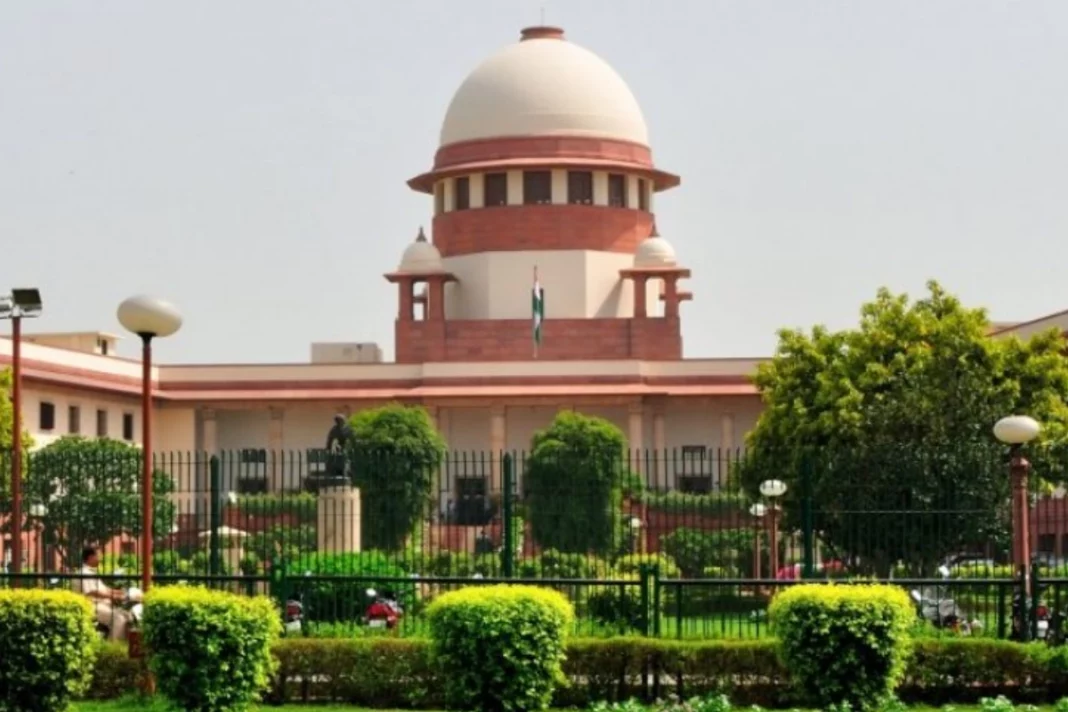The Dravida Munnetra Kazhagam (DMK) has told the Supreme Court that the Citizenship (Amendment) Act of 2019 is ‘arbitrary’ as it only considers religious minorities from three countries while keeping Sri Lankan Tamils as refugees in India.
The affidavit filed by DMK states that the central government has been conspicuously silent to the plight of Tamil refugees. The step-motherly treatment of the respondent No.1 (Centre) towards the Tamil refugees has left them to live in constant fear of deportation and an uncertain future.
DMK made this allegation
The dMK said that the CAA is arbitrary as it pertains to only three countries Pakistan, Afghanistan and Bangladesh and is limited to only six religions Hindu, Sikh, Buddhist, Jain, Parsi and Christian communities and explicitly excludes Muslim religion.
Filing an affidavit before the Supreme Court in its petition challenging the CAA, the DMK said that while considering religious minorities, the Center continues to keep Indian-origin Tamils who fled Sri Lanka due to persecution and are currently living in India as refugees.
The affidavit filed by RS Bharathi, organizing secretary of Tamil Nadu’s governing party, states that the Act is against the Tamil race and similarly excludes Tamils living in Tamil Nadu from the purview of the Act. The DMK in its affidavit said that due to such obscurity they are forced to live in camps where they are often exploited with no prospect of future security.
DON'T MISS
The DMK said the Act deliberately kept out Muslims who had faced persecution in the six countries and was therefore highly discriminatory and clearly arbitrary. At least 220 petitions were filed against the CAA before the apex court.
In 2020, the Kerala government also filed a suit in the apex court to become the first state to challenge the CAA. The CAA was passed by the Parliament on December 11, 2019 and was followed by protests across the country. It came into force on 10 January 2020.
He challenged the act
Indian Union Muslim League (IUML), a political party from Kerala, DMK, Trinamool Congress MP Mahua Moitra, Congress leader and former Union Minister Jairam Ramesh, All India Majlis-e-Ittehadul Muslimeen (AIMIM) leader Asaduddin Owaisi, Congress leader Debabrata Saikia NGO Rihai Manch and Citizens Against Hate, Assam. Others, including Advocates’ Association and law students, had filed a petition in the apex court challenging the Act.
The law fast-tracks the process of granting citizenship to Hindus, Sikhs, Buddhists, Jains, Parsis and Christians who fled religious persecution in Afghanistan, Bangladesh and Pakistan and took refuge in India on or before December 31, 2014.
Also Read – International Indigenous day 2022: Everything You Need To Know
Keep watching our YouTube Channel ‘DNP INDIA’. Also, please subscribe and follow us on FACEBOOK, INSTAGRAM, and TWITTER.



